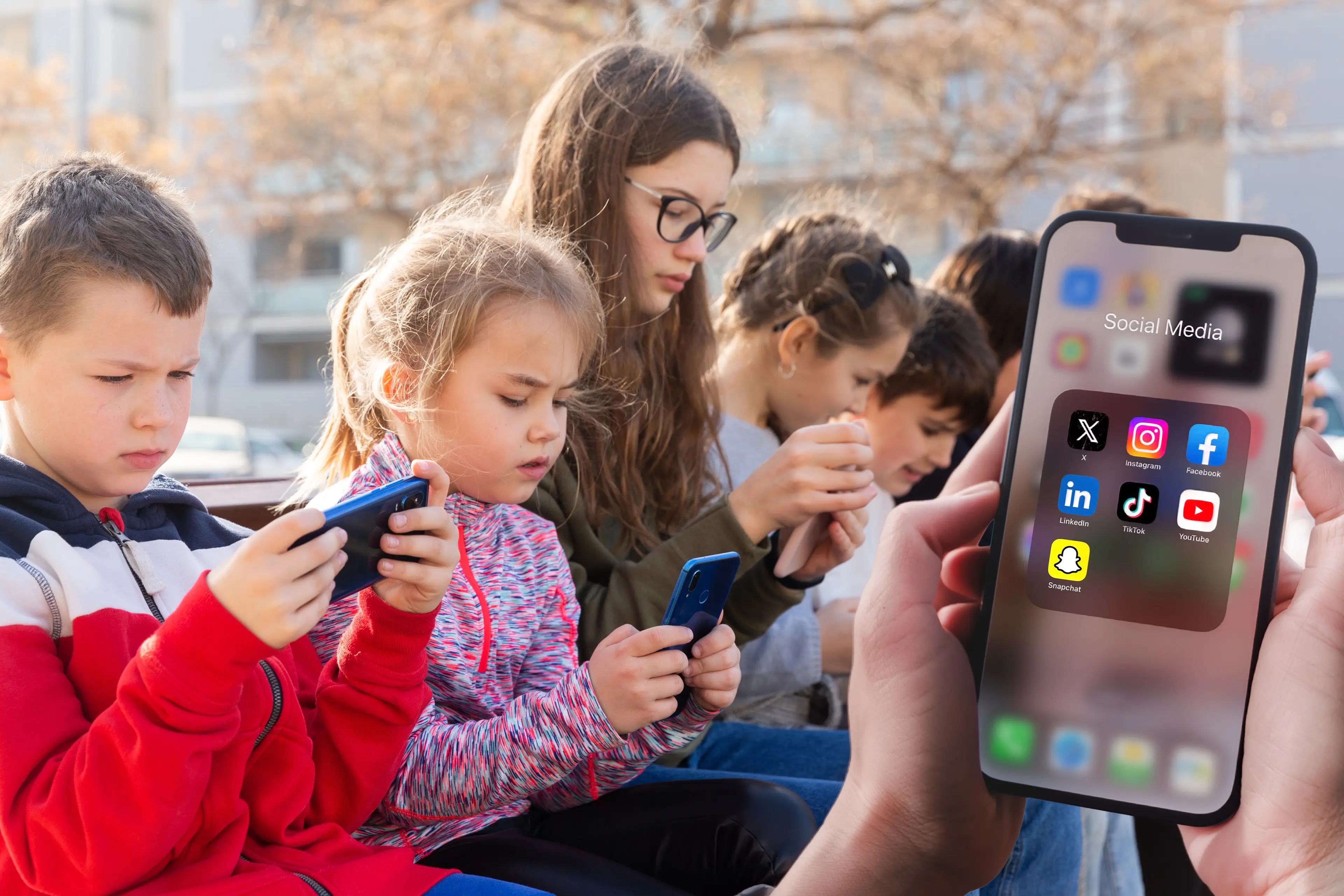PHOTO
Kids using phones outdoors, concept of children addiction to social network
Families in the Wangaratta district are among those across the nation preparing for the 10 December introduction of social media restrictions for under 16s.
From this date, age-restricted social media platforms will have to take reasonable steps to prevent Australians under the age of 16 from creating or keeping an account.
These restrictions are designed to protect children from the pressures and risks to which they can be exposed via social media accounts on platforms like Instagram, Snapchat, TikTok, Threads, Twitch and YouTube, and to restrict the amount of time they are spending on screens.
Advice from the eSafety Commissioner is that age restrictions will apply to social media platforms that meet three specific conditions, unless they are excluded based on criteria set out in legislative rules made by the Minister for Communications in July this year.
The conditions for age restriction are:
* the sole purpose, or a significant purpose, of the service is to enable online social interaction between two or more end-users;
* the service allows end-users to link to, or interact with, some or all of the other end-users; and
* the service allows end-users to post material on the service.
There will be no penalties for under-16s who access an age-restricted social media platform, or for their parents or carers, but age-restricted social media platforms may face penalties if they don't take reasonable steps to prevent under-16s from having accounts.
Leading child protection organisation Act for Kids is encouraging families to start having important conversations with their children ahead of the 10 December introduction of the restrictions.
Act for Kids chief executive officer Dr Katrina Lines said being disconnected from friends on social media could cause some children to experience anxiety and distress, so parents and carers should be prepared for this.
"It's important to keep the lines of communication open in the lead-up to and even long after these changes take effect," Dr Lines said.
"Reassure your kids that they can always come to you if they are worried about anything.
"One way of starting this conversation could be by asking them how they would like to stay connected to friends and family outside of social media."
An Act for Kids survey of more than 300 Australian children aged 10 to 16 found that 41 per cent would rather connect with family in real life, compared to only 15 per cent who preferred to spend time online.
"As a society, we need to listen to what children are saying and explore different ways to connect with them or connect them with their peers, whether that's in real life or by trying new things such as playing games together online. Research shows games are a great way for kids to feel connected.
"The age restrictions are also a great opportunity to allow time to prepare children and young people for social media by teaching them about the risks associated with sharing your images and own content online.
"Parents can use the time before kids turn 16 to prepare and empower them to use it appropriately."
Professor Marie Yap, psychologist and parenting expert at the Turner Institute for Brain and Mental Health in the Monash School of Psychological Science, encouraged parents to equip themselves with information, including through the eSafety Commissioner website, and know how to answer questions or correct any disinformation or misinformation they may present.
She said in discussion with children, the focus should be on showing empathy, validating their feelings and keeping the dialogue open.
"Creating a safe space for your children to talk openly will strengthen your relationship and enable you to help them navigate the dynamic digital world they are growing up in," she said.
If families or children need support through the change, help is available via Kids Helpline, 1800 551 800, and Lifeline, 13 11 14.





